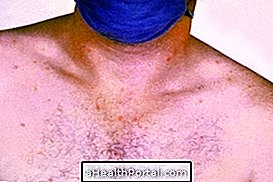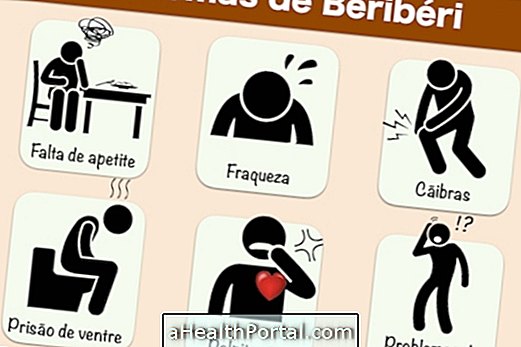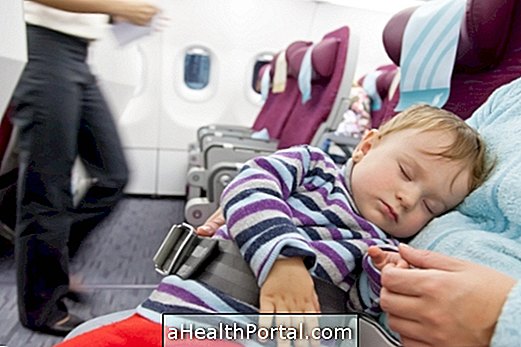Ramsay Hunt syndrome, also known as herpes zoster of the ear, is an infection of the facial and auditory nerve that causes facial paralysis, hearing problems, vertigo and the appearance of red spots and blisters in the ear region.
Ramsay Hunt syndrome is caused by the herpes zoster virus, which causes chickenpox, which is dormant in a ganglion of the facial nerve and that can be reactivated in immunosuppressed individuals, diabetics, children or the elderly, causing this syndrome.
Ramsay Hunt Syndrome is not contagious, however, the herpes zoster virus that can be found in the blisters present near the ear can be transmitted to others and cause chicken pox in individuals who have not had the infection before.
Pictures of Ramsay Hunt Syndrome


Symptoms of Ramsay Hunt Syndrome
Symptoms of Ramsay Hunt Syndrome can be:
- Facial paralysis;
- Severe ear pain;
- Vertigo;
- Pains and headaches;
- Difficulty in speaking;
- Fever;
- Dry eyes;
- Changes in the palate.
At the beginning of the manifestation of the disease occurs small bubbles filled with fluid in the external ear and the ear canal, which may also form in the tongue or sky of the mouth. The hearing loss in this infection can be permanent. The vertigo lasts from a few days to several weeks.
Diagnosis of Ramsay Hunt Syndrome
The diagnosis of Ramsay Hunt Syndrome is made based on the symptoms presented by the patient along with the examination to the ear. Other tests, such as the Shirmer test, to evaluate tearing, or gustometria test, to evaluate palate, can also be performed. Some laboratory tests, such as PCR, can also be done to detect the presence of the virus.
The differential diagnosis of Ramsay Hunt Syndrome is made with diseases such as Bell's palsy, post-herpetic neuralgia, or trigeminal neuralgia.
Treatment of Ramsay Hunt Syndrome
Treatment of Ramsay Hunt Syndrome is done with antiviral medicines, such as acyclovir, and anti-inflammatories such as prednisone. Intake of analgesics to relieve pain and Diazepam to control vertigo is also indicated.
Surgical intervention may be important when there is compression of the facial nerve, which may alleviate paralysis. Speech therapy helps minimize the effects of hearing infection and paralysis of facial muscles.























